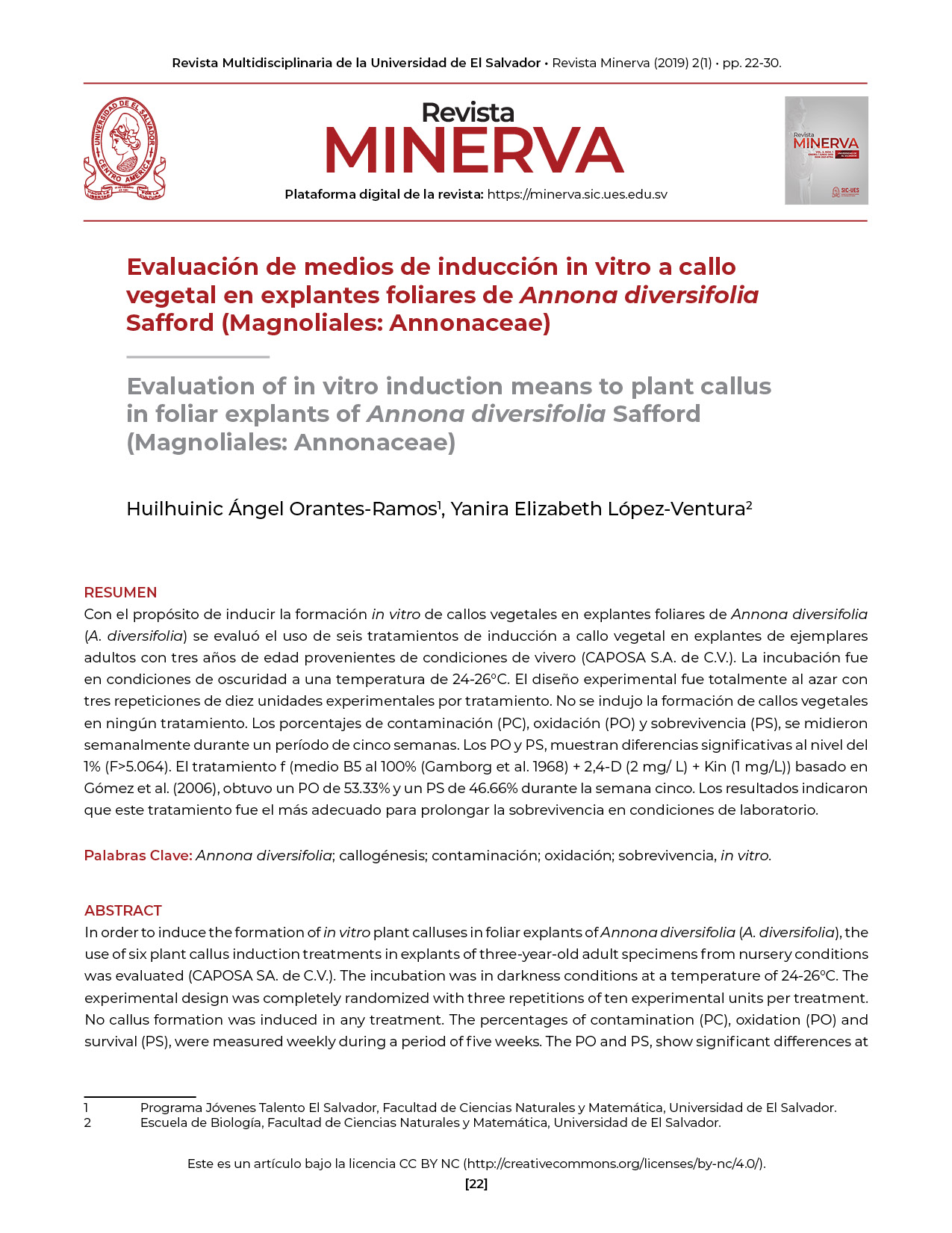Abstract
In order to induce the formation of in vitro plant calluses in foliar explants of Annona diversifolia (A. diversifolia), the use of six plant callus induction treatments in explants of three-year-old adult specimens from nursery conditions was evaluated (CAPOSA SA. de C.V.). The incubation was in darkness conditions at a temperature of 24-26°C. The experimental design was completely randomized with three repetitions of ten experimental units per treatment. No callus formation was induced in any treatment. The percentages of contamination (PC), oxidation (PO) and survival (PS), were measured weekly during a period of five weeks. The PO and PS, show significant differences at the level of 1% (F> 5.064). The treatment f (100% B5 medium (Gamborg et al., 1968) + 2,4-D (2 mg / L) + Kin (1 mg / L)) based on Gómez et al. (2006), obtained a PO of 53.33% and a PS of 46.66% during week five. The results indicate that the treatment was the most adequate to prolong survival in laboratory conditions.

This work is licensed under a Creative Commons Attribution 4.0 International License.
Copyright (c) 2019 Authors who publish in Revista Minerva agree to the following terms: Authors continue as owners of their work, assigning only dissemination rights to Minerva Magazine under the standards of the Creative Commons Attribution 4.0 International License (CC BY 4.0). This license allows others to mix, adapt and build upon the work for any purpose, including commercially, and although new works must also acknowledge the initial author, they do not have to license derivative works under the same terms.





